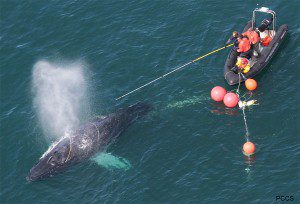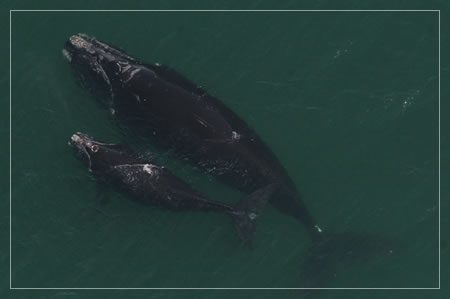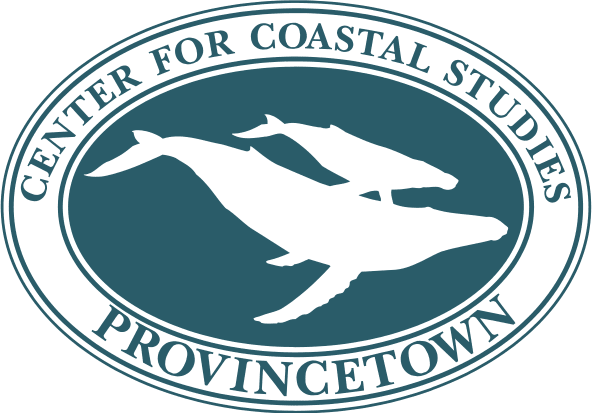 On Tuesday, April 21 representatives from twelve countries will arrive at the Center for Coastal Studies in Provincetown to participate first official meeting of the International Whaling Commission’s Global Whale Entanglement Response Network (GWERN).
On Tuesday, April 21 representatives from twelve countries will arrive at the Center for Coastal Studies in Provincetown to participate first official meeting of the International Whaling Commission’s Global Whale Entanglement Response Network (GWERN).
In recent years there has been an increase in the number of reported whale entanglements worldwide. Concern for the welfare of these whales, and for the wellbeing the individuals attempting to release them, prompted the IWC, in collaboration with the Center for Coastal Studies (CCS), to develop an entanglement response capacity-building program to educate new responders in professional response techniques.
The program, which is managed jointly by the IWC and CCS, provides “in country” training workshops using a curriculum that follows training techniques first developed by CCS and which are now endorsed by the heads of all existing National Entanglement Response Networks, and by the 88 member countries of the IWC.
Not only does the program increase the potential for survival of entangled whales, but it also ensures that disentanglement operations are conducted to the highest safety standards, minimizing risk of injury to both humans and animals. Since 2012 almost 400 individuals from 18 countries have participated in the program.

CCS Marine Animal Entanglement Response team works to disentangle humpback whale off Mount Desert, ME. CCS image under NOAA permint 932-1905.
This week’s GWERN meeting and workshop will enable the experts who devised the program to evaluate it with some of the new responders they helped to train. One key aim of the workshop is to review the current curriculum. Participants will consider new information and developments, and also review the experiences and any lessons from the newly trained responders.
Attendees will also discuss how best to determine the origin of the fishing gear and other entanglements, in order to develop understanding of which items pose the greatest hazard, where they originate, and how far they have travelled. This information is crucial in working towards the ultimate goal of avoiding entanglements occurring in the first place. Collating this information is also vital in order to build a comprehensive, meaningful picture of the nature and extent of the problem.
A third important objective of the workshop is to consider how best to gather and sort data. The IWC already manages a database recording collisions between ships and whales, and the group will consider whether this model also lends itself to the entanglement issue.
This is a closed meeting, but representatives will release an overview of the proceedings after the workshop, which ends on Thursday, April 23.
Thanks to Kate Wilson at the IWC for this overview.

Our Work
Humpback Whale Research
Right Whale Research
Marine Animal Entanglement Response
Marine Geology Department
Water Quality Monitoring Program
Marine Fisheries Research
Seal Research
Shark Research
Marine Education
Interdisciplinary
Marine Debris and Plastics Program
Marine Policy Initiative
Cape Cod Climate Change Collaborative
Publications

